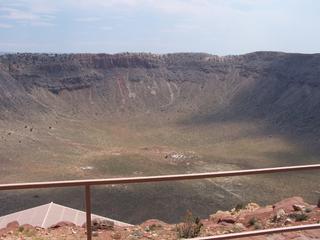Filling in the Holes
Looking back on my academic career thus far, I am beginning to wonder about all the things missing from my education. Someone should have pulled me aside as an undergraduate and said: "Look, you'll really regret it if you don't take any English classes. Probably the same for history, philosophy, psychology, biology, and religion. Your bizarre affinity for the Russian language not withstanding, being multi-lingual in useful languages would be an asset. Feel free to branch out at any time." I truly wish someone had said that to me. Because now, I do regret all of those things.
I think it's not simple to go back, though, and develop even the most basic, broad understanding of one of the fields from which I am now so far removed. I cannot help but look at the amount of time it would take me to learn conversational French and wonder if that time wouldn't be better spent working on another paper. Or forming a new collaboration with a colleague in my own field. That's what my advisor (and, frankly, the rest of the faculty here) would tell me to do. And how does one learn history while on a time budget? I can probably still recite the US Presidents in order (thanks Ms. Cleary!), but even the highlights of the van Buren administration now elude me. I don't need a book detailing the economic developments leading up to the fall of communism in East Germany, I need "High School World History for Dummies." Those are harder to come by, in my experience. And while my "Learn to Speak Italian in 10 Lessons" CDs are very entertaining, I cannot say that I have developed anything more than a repertoire of vaguely useful phrases. Linguistically, the language eludes me.
These topics are nothing, however, compared to my illustrious career in biology. I have not taken a biology course since 9th grade (circa 1990). I check with my biologist and doctor friends every so often to make sure we're still believing in this whole DNA thing, but beyond that? I'm seriously deficient. It's a travesty. And yet, where do I begin to fix that?
Our higher education system just seems so odd to me sometimes. We become so specialized, so focused on one narrow topic that other things seem just to fall by the wayside. And I don't necessarily think anymore that this specialization is to our benefit. I'll have my Ph.D. in under a year, but all that will mean (in a practical sense) is that I studied one tiny thing, really hard, for a long time. You would think that a Doctor of Philosophy might actually know some philosophy. But in my case at least, you would be wrong.
I think it's not simple to go back, though, and develop even the most basic, broad understanding of one of the fields from which I am now so far removed. I cannot help but look at the amount of time it would take me to learn conversational French and wonder if that time wouldn't be better spent working on another paper. Or forming a new collaboration with a colleague in my own field. That's what my advisor (and, frankly, the rest of the faculty here) would tell me to do. And how does one learn history while on a time budget? I can probably still recite the US Presidents in order (thanks Ms. Cleary!), but even the highlights of the van Buren administration now elude me. I don't need a book detailing the economic developments leading up to the fall of communism in East Germany, I need "High School World History for Dummies." Those are harder to come by, in my experience. And while my "Learn to Speak Italian in 10 Lessons" CDs are very entertaining, I cannot say that I have developed anything more than a repertoire of vaguely useful phrases. Linguistically, the language eludes me.
These topics are nothing, however, compared to my illustrious career in biology. I have not taken a biology course since 9th grade (circa 1990). I check with my biologist and doctor friends every so often to make sure we're still believing in this whole DNA thing, but beyond that? I'm seriously deficient. It's a travesty. And yet, where do I begin to fix that?
Our higher education system just seems so odd to me sometimes. We become so specialized, so focused on one narrow topic that other things seem just to fall by the wayside. And I don't necessarily think anymore that this specialization is to our benefit. I'll have my Ph.D. in under a year, but all that will mean (in a practical sense) is that I studied one tiny thing, really hard, for a long time. You would think that a Doctor of Philosophy might actually know some philosophy. But in my case at least, you would be wrong.





